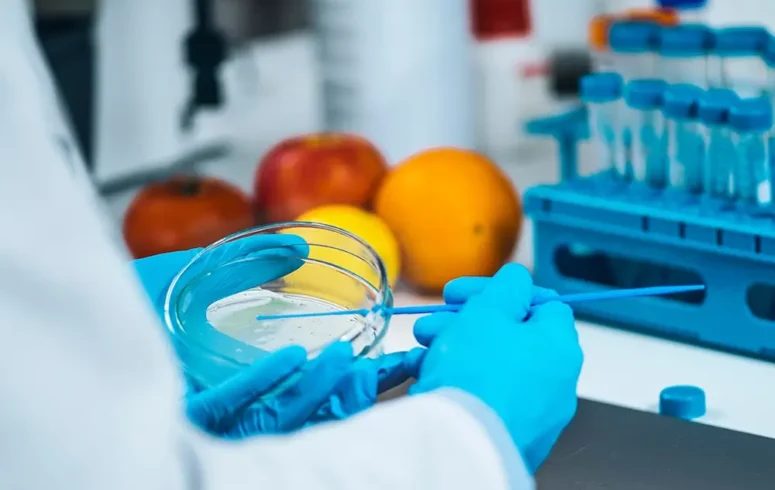Food Poisoning
Fighting for Victims of Food Poisoning Caused by Food Processor, Supplier, or Preparer Negligence
Contact Simon Law to schedule your free case evaluation.
Food Poisoning Attorneys at Simon Law
Food poisoning can result in serious illness or, in severe cases, even death. The lost wages due to missed work and potential medical costs incurred for treatment could be substantial. The experienced food poisoning attorneys at Simon Law are prepared to thoroughly examine your case details to hold those responsible for your illness accountable and get you the maximum compensation you’re entitled to.

About Food Poisoning
Food poisoning, also referred to as foodborne illness, is a serious health concern that could be life-threatening if complications occur. According to the Centers for Disease Control (CDC), an estimated 48 million people get sick from food poisoning in the United States each year, resulting in 128,000 associated hospitalizations and 3,000 deaths. Many types of foods, such as meat, seafood, dairy, and produce, may be contaminated with harmful bacteria, viruses, or parasites. If these foods are improperly handled, cooked, or stored, the risk of causing food poisoning increases if an individual consumes the spoiled or contaminated food.
Common Causes of Food Poisoning
Individuals can contract food poisoning from various sources, including fast food establishments, restaurants, food trucks, bars, sports stadium concessions, store-bought items, and more. While almost any food you consume could be at risk of contamination, these are the most common foods that result in foodborne illness:
- Raw or undercooked meat: Includes poultry or raw meat, such as beef, pork, lamb, turkey and chicken
- Raw or undercooked eggs: Includes consuming food items containing raw eggs, such as cookie dough
- Raw seafood: Includes shellfish (raw oysters, clams, mussels), as well as fish
- Unpasteurized dairy products: Milk, cheese, yogurt, and other dairy products
- Pre-cut vegetables and fruits: Any pre-cut items are at risk of contamination due to improper storage or handling
- Sprouts: Items such as alfalfa, clover, and radish sprouts are prone to bacterial contamination
- Processed Meats: Deli meats, hot dogs, and sausages are at risk of contamination during processing
- Unwashed produce: Fresh fruits and vegetables consumed before washing may contain bacteria, parasites, or pesticides
- Soft cheeses: Cheeses made using unpasteurized milk such as Brie, Camembert, and feta are at risk of contamination
- Cross-contaminated foods: Any prepared foods are at risk of cross contamination if bacteria from raw meats or other items is transferred and not cooked properly
- Contaminated water: Untreated water may be contaminated with bacteria, parasites, viruses, or other harmful microorganisms
Common Types of Food Poisoning
Several types of bacteria, viruses, parasites, and diseases occur from food poisoning. The most common types of foodborne illness occur due to:
- E. Coli (Escherichia coli): Bacteria typically found in processed ground beef and on leafy vegetables (i.e. lettuce) that have not been properly cleaned or had been contaminated.
- Campylobacter enteritis: Bacterial illness spread via improperly cooked processed meats or by consuming contaminated milk, water, or vegetables.
- Botulism: A rare but severe illness caused by toxins attacking nerves within the body. Botulism is typically found in preserved vegetables, fish, canned tuna, and meat products.
- Giardia: A small parasite that causes diardiasis’s diarrheal disease that is spread through contaminated food, water, or personal contact. This is most commonly found in areas with unsafe water and poor sanitation practices.
- Listeria: A bacterial infection resulting from eating contaminated meat, cheese, and fruit. Listeria mostly affects those with weakened immune systems such as pregnant women, newborns, and the elderly.
- Salmonella poisoning: A bacterial infection that causes symptoms within hours of exposure, including fever, diarrhea, and abdominal cramping that may last for several days and potentially result in hospitalization.
- Norovirus: A viral infection transmitted by infected food, water, or other items, causing the stomach to become inflamed and irritated.
- Hepatitis A: A viral infection affecting the liver that is spread by food handlers improperly washing hands after going to the restroom.
Symptoms of Food Poisoning
Due to the wide range of food poisoning causes and individual reactions, symptoms will vary in every instance. However, the following are the most common symptoms experienced by those affected by foodborne illness:
- Gastrointestinal discomfort or distress: One of the earliest signs of food poisoning, individuals may experience nausea, vomiting, abdominal pain, and diarrhea. These symptoms may appear as early as a few hours after consuming contaminated food.
- Fever and fatigue: In some cases, food poisoning will trigger an immune response that results in a fever and overall fatigue.
- Muscle aches: If the body reacts with an inflammatory response to the bacteria or toxins, individuals may experience muscle aches and pains.
- Dehydration: This is a severe complication that can occur due to persistent diarrhea and vomiting caused by food poisoning.
- Neurological symptoms: Some types of severe food poisoning can cause neurological symptoms, including confusion, dizziness, and seizures. These symptoms require immediate medical attention.
- Post-infectious Irritable Bowel Syndrome (PI-IBS): Occurring after food poisoning, PI-IBS can cause persistent abdominal pain, bowel habit changes, and reduced quality of life.
- Organ damage: In severe food poisoning cases, organ damage may occur, particularly to the kidneys and heart, leading to chronic conditions including kidney failure. It may also lead to cardiovascular issues over time.
- Psychological impact: When food poisoning cases are severe, it can have psychological effects, such as anxiety or developing a fear of certain foods. These effects can change an individual’s dietary choices and hurt their overall wellbeing.
When Does Food Poisoning Qualify for Compensation?
To qualify for compensation after experiencing a foodborne illness, certain conditions need to be met. To be eligible for compensation, these are the key factors that are typically required:
- Proof of illness: You must demonstrate that you were diagnosed with food poisoning. This can often come from medical records or a doctor’s note confirming the illness.
- Source identification: It’s crucial to identify the source of the food poisoning. This could be a specific restaurant, food product, or supplier. Evidence such as receipts, purchase records, or lab tests linking the contaminated food to the source is necessary.
- Negligence or liability: You must show that the food poisoning resulted from someone else’s negligence or breach of duty. This could be due to improper food handling, poor sanitation, contaminated ingredients, or failure to comply with health and safety regulations.
- Damages: Compensation is typically awarded for tangible damages. These can include medical expenses, lost wages, pain and suffering, and other related costs incurred as a result of food poisoning.
- Causation: Establishing a direct link between the negligence and the illness is essential. This often involves demonstrating that the food poisoning was caused by consuming the contaminated food and not by another source.
If these conditions are met, you may be eligible for compensation through a personal injury claim. Consulting with a legal professional who specializes in food poisoning cases can help you navigate the process and determine the strength of your claim.
Who is Held Liable in a Food Poisoning Case?
In a food poisoning case, liability can fall on several parties depending on the specifics of the case. The following are common entities that may be held liable:
- Restaurants and food establishments: If the food poisoning is traced back to a restaurant or food establishment, they can be held liable for serving contaminated or improperly prepared food. This includes fast food outlets, cafes, fine dining restaurants, and other establishments.
- Food manufacturers and processors: If the contamination occurred during the manufacturing or processing phase, the companies responsible for producing or packaging the food can be held liable. This includes factories, processing plants, and packaging facilities.
- Grocery stores and retailers: If the food was purchased from a grocery store or retailer, they could be liable if the food was contaminated due to improper storage, handling, or sale of expired products.
- Distributors and suppliers: Companies involved in the distribution and supply chain can also be held liable if the contamination occurs during transportation or handling. This includes wholesalers, logistics companies, and other intermediaries.
- Farmers and agricultural producers: In some cases, the source of contamination can be traced back to the farm or agricultural producer. This could be due to the use of contaminated water, pesticides, or other harmful substances during cultivation and harvesting.
- Event organizers and caterers: If the food poisoning occurred at a catered event or large gathering, the event organizers or catering companies could be held liable for improper food preparation, storage, or serving practices.
Determining liability in food poisoning cases often requires a thorough investigation to trace the source of contamination and establish the chain of custody for the food product. An experienced personal injury attorney can help identify the responsible parties and build a strong case for compensation.
Simon Law Food Contamination Cases
- Lawsuit names second source for local E. coli outbreak (Dec 9, 2024) – First Alert 4
- Contaminated salad at meeting gives Missouri teacher lif-threating illness, suit says (Dec 10, 2024) – Kansas City Star
- Teacher fought for her life after E. coli infection in St. Charles, lawsuit says – MSN
- Teacher fought for her life after E. coli infection in St. Charles, lawsuit says (Dec 9, 2024) – KSDK
Meet Our Dedicated Team of Attorneys
When you need qualified and reliable guidance, you know where to turn. Simon Law is ready to listen to your story and review the complex aspects of your case.










Contact Our Firm Today
Our mission is to provide the highest-quality legal services with integrity, professionalism, and respect for our clients. Simon Law has the resources and expertise to handle your case without sacrificing the personalized counsel and support you deserve.